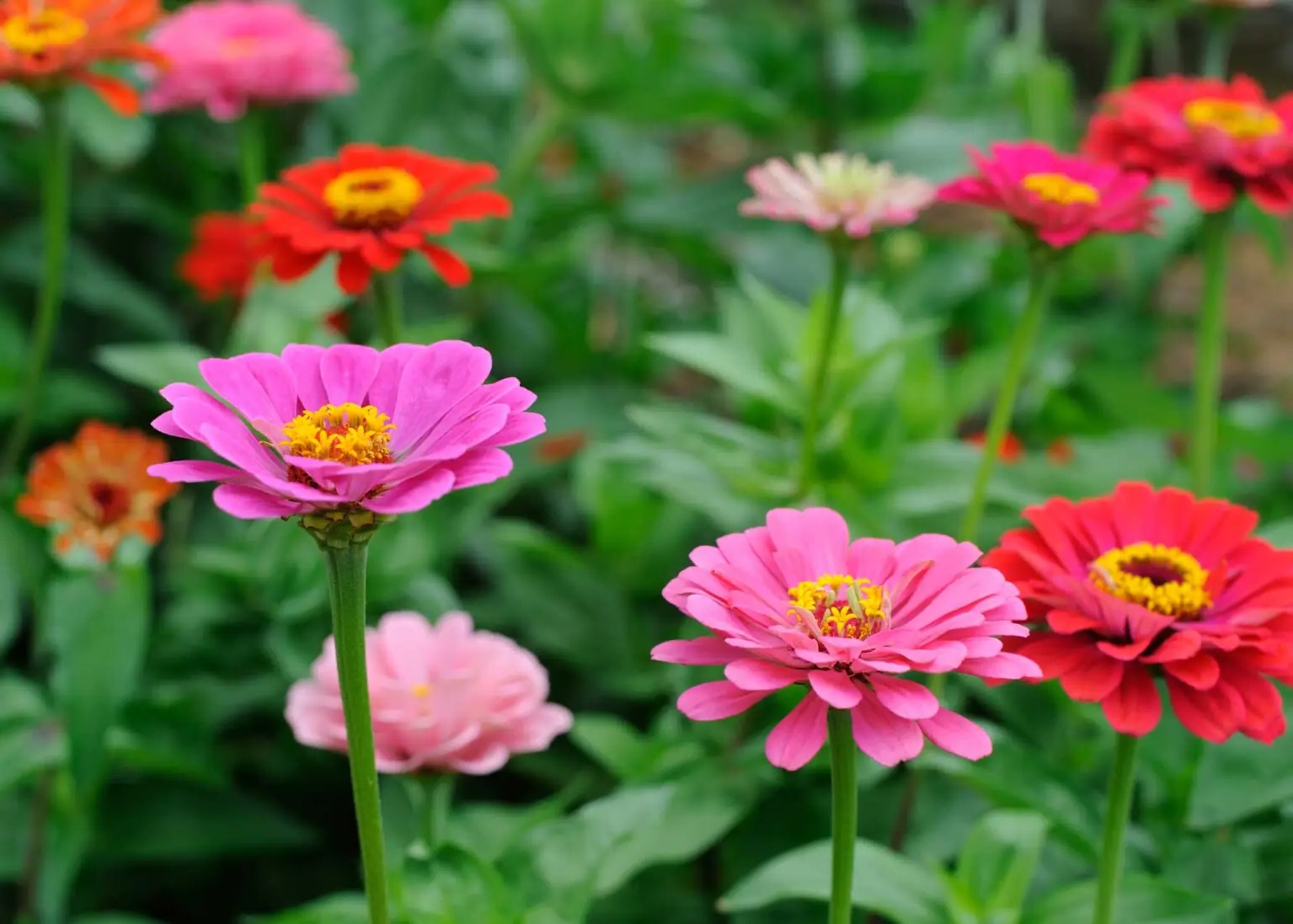
Zinnias are vibrant, easy-to-grow flowers that bring a splash of color to any garden. But did you know these beauties have a rich history and some surprising traits? Originating from Mexico, zinnias have been cultivated for centuries, admired for their resilience and variety. They come in a rainbow of colors, from fiery reds to soft pastels. Gardeners love them for their long blooming season and ability to attract pollinators like butterflies and bees. Whether you're a seasoned gardener or a beginner, zinnias are a fantastic choice. Ready to learn more? Here are 36 fascinating facts about zinnias that will make you appreciate these flowers even more.
The Beauty of Zinnias
Zinnias are vibrant, colorful flowers that brighten up any garden. Their easy maintenance and stunning appearance make them a favorite among gardeners.
- Zinnias belong to the daisy family.
- They are native to Mexico and the southwestern United States.
- The flower was named after the German botanist Johann Gottfried Zinn.
- Zinnias come in a variety of colors, including red, pink, yellow, orange, purple, and white.
- They are known for their long-lasting blooms, which can last from early summer until the first frost.
Growing Zinnias
Growing zinnias is straightforward, making them perfect for both novice and experienced gardeners. Here are some interesting facts about cultivating these beautiful flowers.
- Zinnias prefer full sun and well-drained soil.
- They are drought-tolerant, making them ideal for hot, dry climates.
- Zinnias can be grown from seeds or transplants.
- They typically germinate within 5 to 7 days.
- The plants can reach heights of 6 inches to 4 feet, depending on the variety.
Types of Zinnias
There are many different types of zinnias, each with unique characteristics. Let's explore some of the most popular varieties.
- Zinnia elegans is the most common species, known for its large, showy flowers.
- Zinnia angustifolia has smaller, daisy-like flowers and is more compact.
- Zinnia haageana is known for its bicolored flowers.
- Zinnia peruviana is a wild species with smaller, less showy flowers.
- Zinnia marylandica is a hybrid known for its disease resistance.
Zinnias in History and Culture
Zinnias have a rich history and cultural significance. Here are some fascinating facts about their role in various cultures.
- The Aztecs used zinnias in ceremonial rituals.
- In the Victorian language of flowers, zinnias symbolize thoughts of absent friends.
- Zinnias were one of the first flowers to be grown in space aboard the International Space Station.
- They are often used in Day of the Dead celebrations in Mexico.
- Zinnias have been featured in art and literature throughout history.
Benefits of Zinnias
Zinnias offer numerous benefits beyond their beauty. Here are some reasons why you might want to plant them in your garden.
- They attract pollinators such as bees, butterflies, and hummingbirds.
- Zinnias can be used as cut flowers for bouquets and arrangements.
- They are easy to grow and require minimal maintenance.
- Zinnias can help suppress weeds due to their dense foliage.
- They are resistant to many common garden pests.
Fun Facts About Zinnias
Zinnias have some quirky and fun facts that make them even more interesting. Let's take a look at a few.
- Zinnias can be used to make natural dyes.
- The flowers can change color as they age.
- Some zinnias have double blooms, meaning they have multiple layers of petals.
- Zinnias can be grown in containers, making them perfect for small spaces.
- They are often used in companion planting to protect other plants from pests.
Zinnias Around the World
Zinnias are loved by gardeners worldwide. Here are some interesting facts about their global presence.
- Zinnias are popular in cottage gardens in the United Kingdom.
- They are often used in public gardens and parks in the United States.
- In India, zinnias are used in traditional garlands.
- Zinnias are a common sight in Mediterranean gardens.
- They are grown in tropical and subtropical regions around the world.
Zinnias in Science
Zinnias have also played a role in scientific research. Here are some intriguing facts about their contributions to science.
- Zinnias have been used in studies on plant genetics and breeding.
Zinnias: Nature's Colorful Gift
Zinnias aren't just pretty flowers; they're a gardener's dream. These vibrant blooms come in a rainbow of colors, making any garden pop. They’re easy to grow, needing just sunlight and well-drained soil. Plus, they attract butterflies, adding even more life to your garden. Zinnias also make great cut flowers, brightening up any room. Their long-lasting blooms mean you get to enjoy their beauty for weeks. Whether you’re a seasoned gardener or just starting out, zinnias are a fantastic choice. They’re resilient, low-maintenance, and bring a burst of color wherever they grow. So, next time you’re planning your garden, consider adding zinnias. You won’t be disappointed.
Was this page helpful?
Our commitment to delivering trustworthy and engaging content is at the heart of what we do. Each fact on our site is contributed by real users like you, bringing a wealth of diverse insights and information. To ensure the highest standards of accuracy and reliability, our dedicated editors meticulously review each submission. This process guarantees that the facts we share are not only fascinating but also credible. Trust in our commitment to quality and authenticity as you explore and learn with us.


